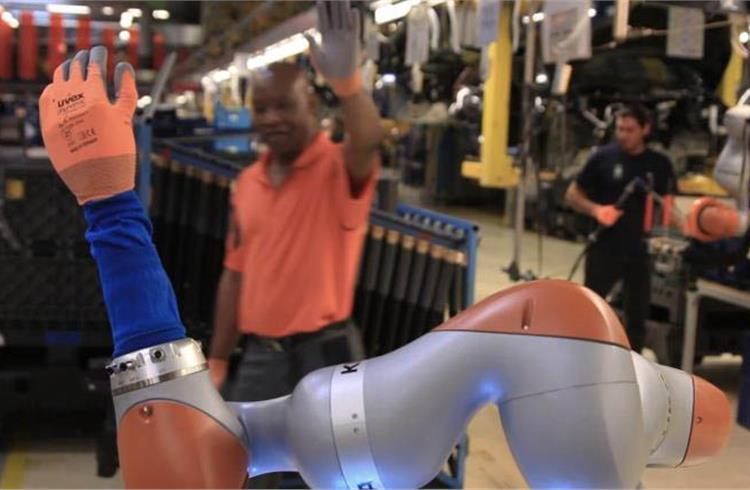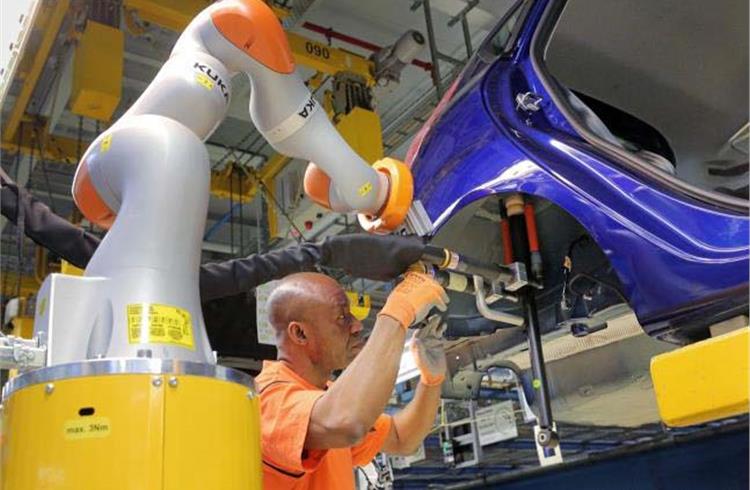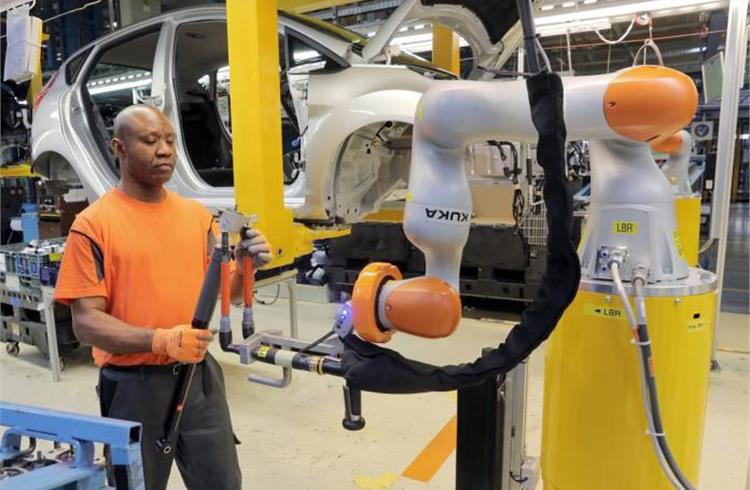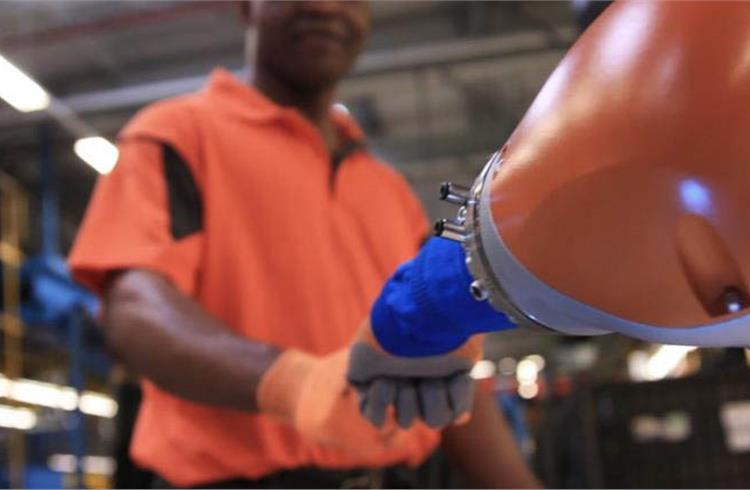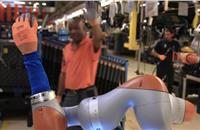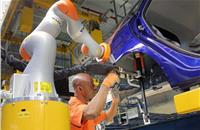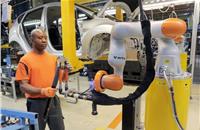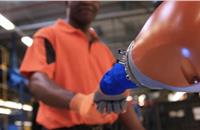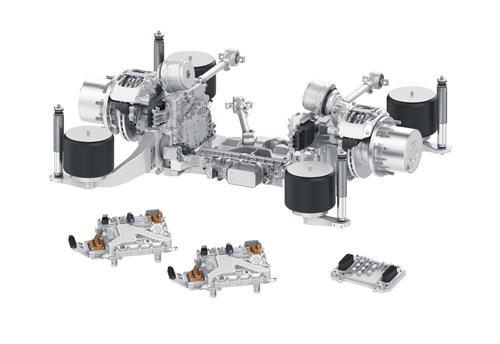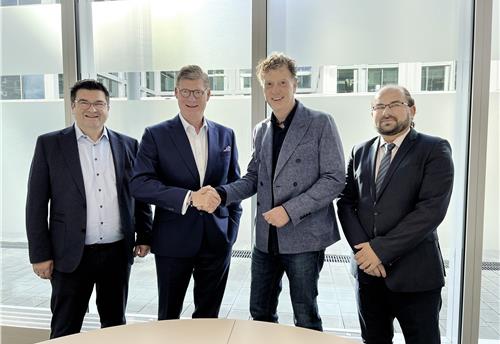Industry 4.0 at work as car workers buddy up with robots
Workers use collaborative robots, known as co-bots, to help fit shock absorbers to Fiesta cars in Cologne, Germany, to ensure perfect fit and to avoid workers having to access hard-to-reach places
More than a hundred years after the first cars rolled off Henry Ford’s pioneering assembly line, Ford Motor Company is breaking new ground in the way workers and robots are collaborating to manufacture vehicles.
New collaborative robots – or co-bots – are being used to help workers fit shock absorbers to Fiesta cars, a task that requires pinpoint accuracy, strength and dexterity. Employees work hand-in-hand with the robots to ensure a perfect fit every time.
The trial at Ford’s assembly plant in Cologne, Germany, is part of the company’s investigations into Industry 4.0 – the fourth industrial revolution embracing automation, data exchange and manufacturing technologies. Ford sought feedback from more than 1,000 production line workers to identify tasks for which the new robots would best be suited.
“Robots are helping make tasks easier, safer and quicker, complementing our employees with abilities that open up unlimited worlds of production and design for new Ford models,” said Karl Anton, director vehicle operations, Ford of Europe.
Measuring a metre high, the robots work hand-in-hand with the line workers at two work stations. Rather than manipulate a heavy shock absorber and installation tool, workers can now use the robot to lift and automatically position the shock absorber into the wheel arch, before pushing a button to complete installation.
“Working overhead with heavy air-powered tools is a tough job that requires strength, stamina, and accuracy. The robot is a real help,” said Ngali Bongongo, a production worker at Ford’s Cologne plant.
Equipped with hi-tech sensors, the co-bots stop immediately if they detect an arm or even a finger in their path to ensure worker safety. Similar technology is used in the pharmaceutical and electronics industries. Developed over two years, the robot programme was carried out in close partnership with German robot manufacturer, KUKA Roboter GmbH.
Ford is now reviewing further use of collaborative robots that can be programmed to perform tasks ranging from shaking “hands” to making a coffee.
“We are proud to show the capabilities of our new generation of sensitive robots that are supporting and collaborating with Ford workers by carrying out ergonomically difficult and technically challenging tasks,” said Klaus Link, key account manager Ford, Kuka Roboter GmbH.
RELATED ARTICLES
Lamborghini unveils Urus SE ahead of Auto China 2024
Electric-only range of 60km helps reduce emissions by 80%.
ZF to display next-gen e-axle for low-floor city buses at Busworld Turkiye 2024
The AxTrax 2 LF is available with a continuous output of up to 360 kW and a peak torque of up to 37,300 Nm.
Daimler Buses and BMZ Poland to develop next-gen NMC4 electric bus batteries
The new battery generation NMC4 – succeeding the current NMC3 technology – will combine high energy density, resulting i...





 By Autocar Pro News Desk
By Autocar Pro News Desk
 14 Jul 2016
14 Jul 2016
 7053 Views
7053 Views



